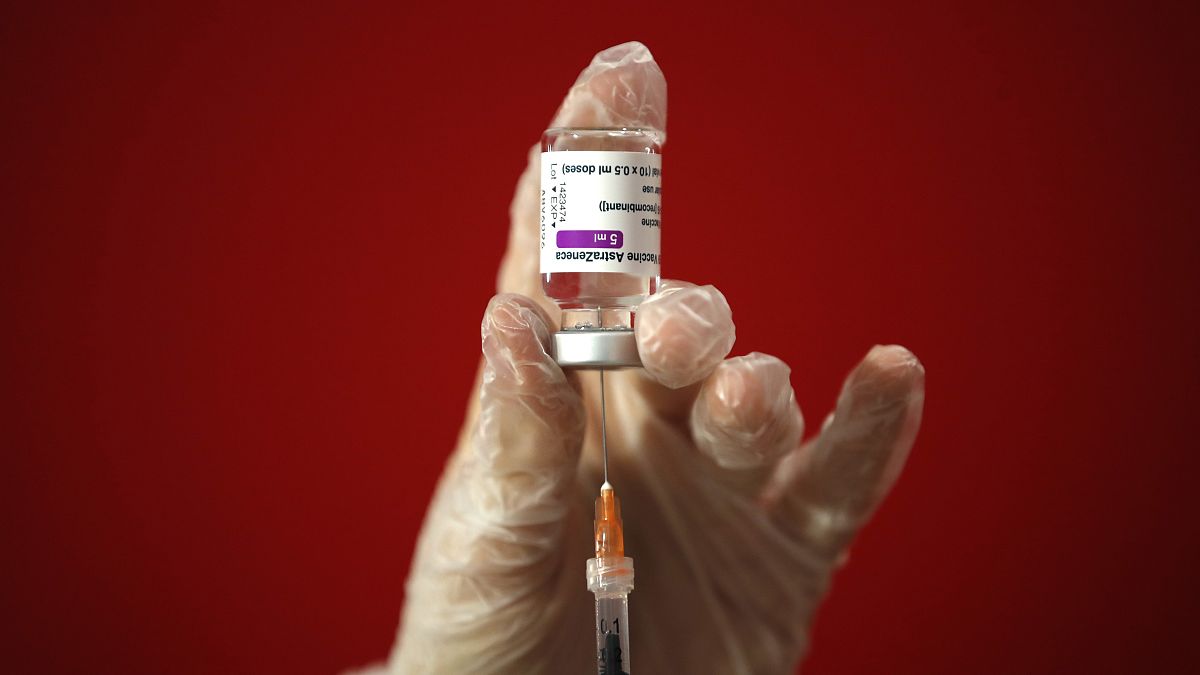Slovakia suspends use of the AstraZeneca jab for first-time vaccinations
Slovakia has suspended the use of the AstraZeneca COVID-19 jab for first-time vaccinations.
"People who are waiting for the second dose of this vaccine are currently being vaccinated with Astra Zeneca," said the country's health ministry. "Vaccination with this company for first-time vaccines has been suspended.
"The Ministry of Health is currently considering several alternatives for how we will proceed in this matter in Slovakia.
"We are completing all expert opinions and will follow up on this later this week.
The decision comes after the country's State Institute for Drug Control (ŠÚKL) ruled that the death of a 47-year-old woman was likely connected to the jab.
In a statement, issued on Friday, ŠÚKL said that it had determined the cause of death to be related to cerebral venous sinus thrombosis, a blood clotting disorder that sees clots form in the veins that drain blood from the brain.
"Genetic examination also revealed blood clotting disorders in the patient," the regulator said.
" Due to the existence of a genetic predisposition to a thrombophilic state, an association between [the AstraZeneca jab] and subsequent venous sinus thrombosis was established as likely," it said.
Blood clots rare side effect
Blood clots have been identified as a very rare side effect of the AstraZeneca jab.
The European Medicines Agency has continued to support the full marketing authorisation for the vaccine, despite the rare blood clot cases.
Last month, it maintained that the benefits of the jab outweigh any risks.
However, the medicines regulator said the benefits increase in areas with higher levels of COVID-19 infection and among older age groups, with younger people believed to be more likely to be affected by the rare side effect.
Meanwhile, the UK's Medicines & Healthcare products Regulatory Agency has also maintained that the benefits of the jab generally outweigh the risks.
In a statement published on Friday, Dr June Raine, MHRA chief executive, said: "Public safety is always at the forefront of our minds and we take every report seriously."
"Our position remains that the benefits of the COVID-19 Vaccine AstraZeneca against COVID-19, with its associated risk of hospitalisation and death, continue to outweigh the risks for the vast majority of people."
" The balance of benefits and risks is very favourable for older people but is more finely balanced for younger people and we advise that this evolving evidence should be taken into account when considering the use of the vaccine," she said.
As such, the UK's Joint Committee on Vaccination and Immunisation (JCVI) recently updated its advice for adults under 40 to advise that unvaccinated people between the ages of 30 to 39 without an underlying health condition be offered an alternative to the AstraZeneca vaccine when possible.
The JCVI said that this would only be the recommendation in cases where providing an alternative would not result in a "substantial delay" to vaccination.
Sputnik V vaccine
The decision to suspend the first doses of the AstraZeneca jab comes as Slovakia's government is set to discuss rolling out Russia's Sputnik V coronavirus vaccine.
The doses were delivered to Slovakia in March and the secret deal to buy them triggered a political crisis.
But they have not been used yet.
The Slovak State Institute for Drug Control said it had not received enough information about the Russian jab from its producer to be able to assess its benefits and risks.
The regulator also said the doses it received from Russia differed from those under review by the European Union’s medicines authority.
The Russian Direct Investment Fund (RDIF), which markets Sputnik V abroad, called the findings “fake news.” It said Slovakia’s drug regulator had tested the vaccine in a laboratory that is not part of the EU’s official network of approved labs.
Hungary has since offered Bratislava assistance and successfully tested Slovakia's doses in one of its laboratories.
Slovakia's health minister Vladimir Lengvarsky said he will talk with his country’s experts about rolling the Sputnik jab out.
